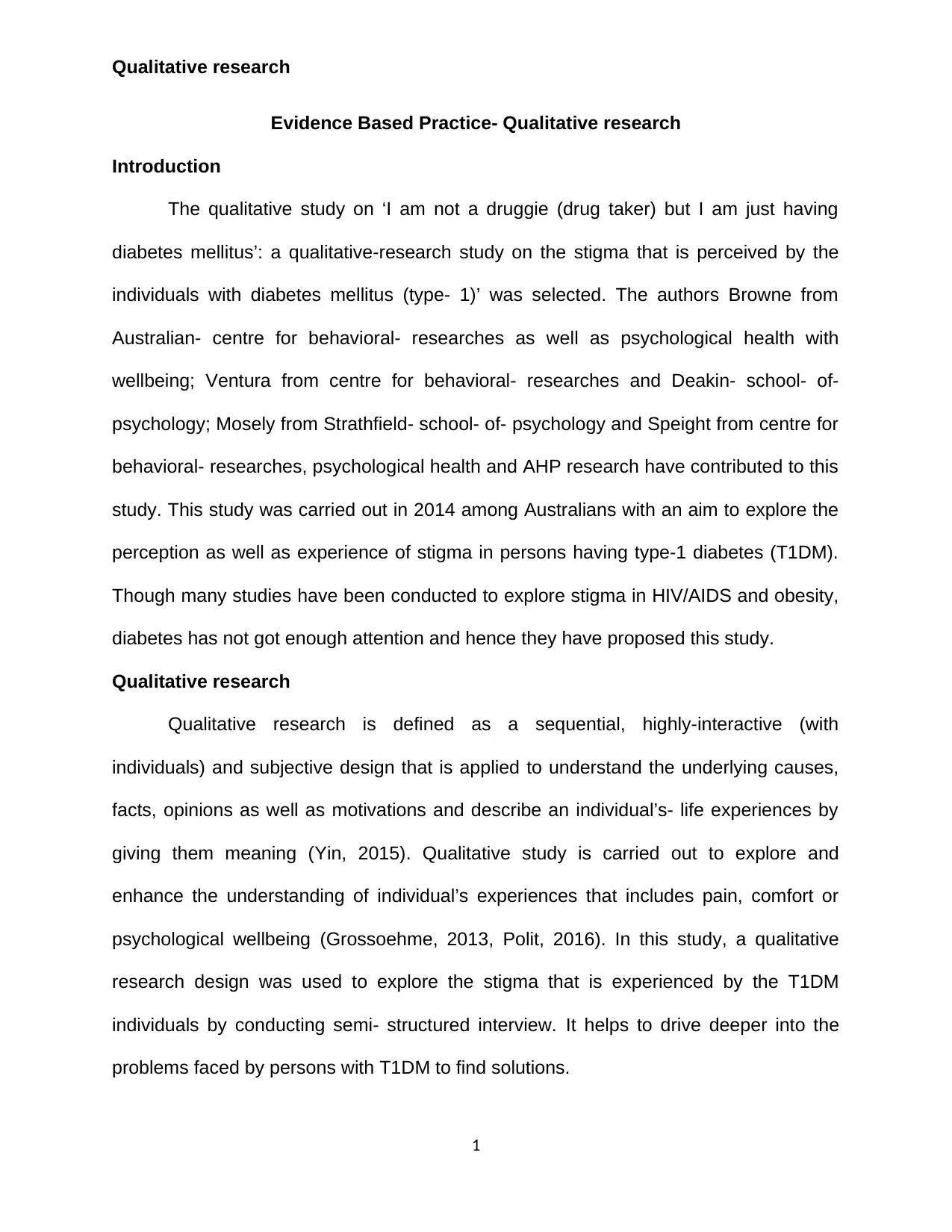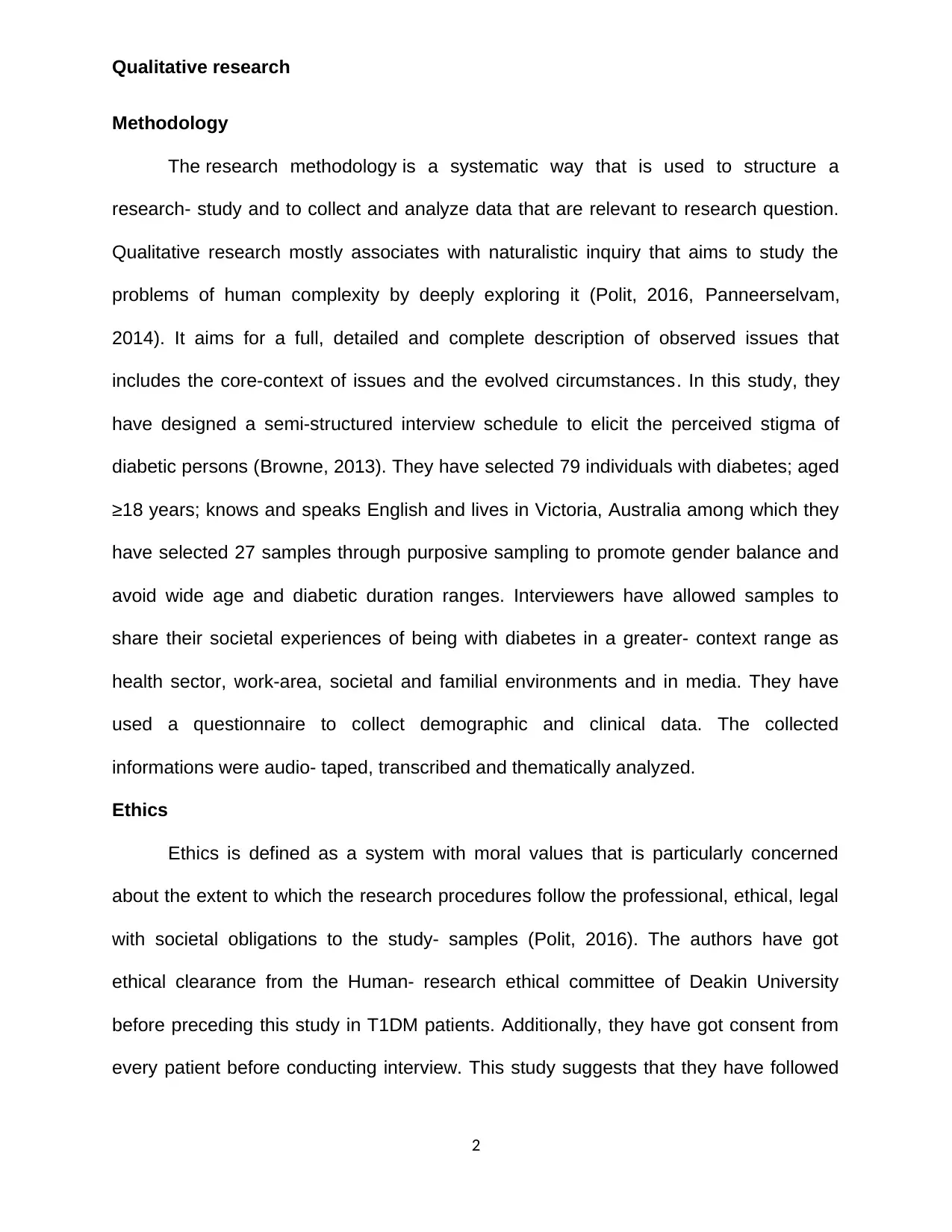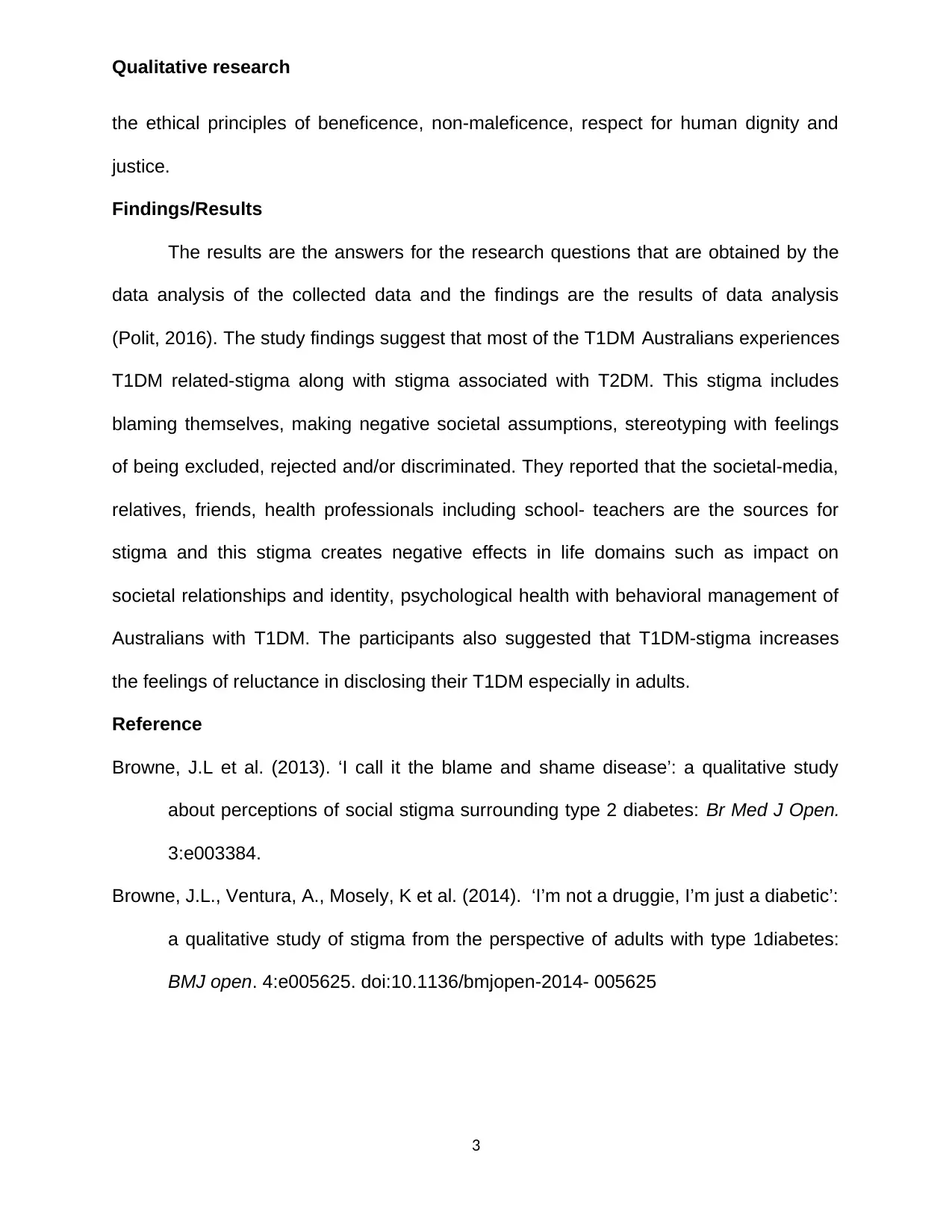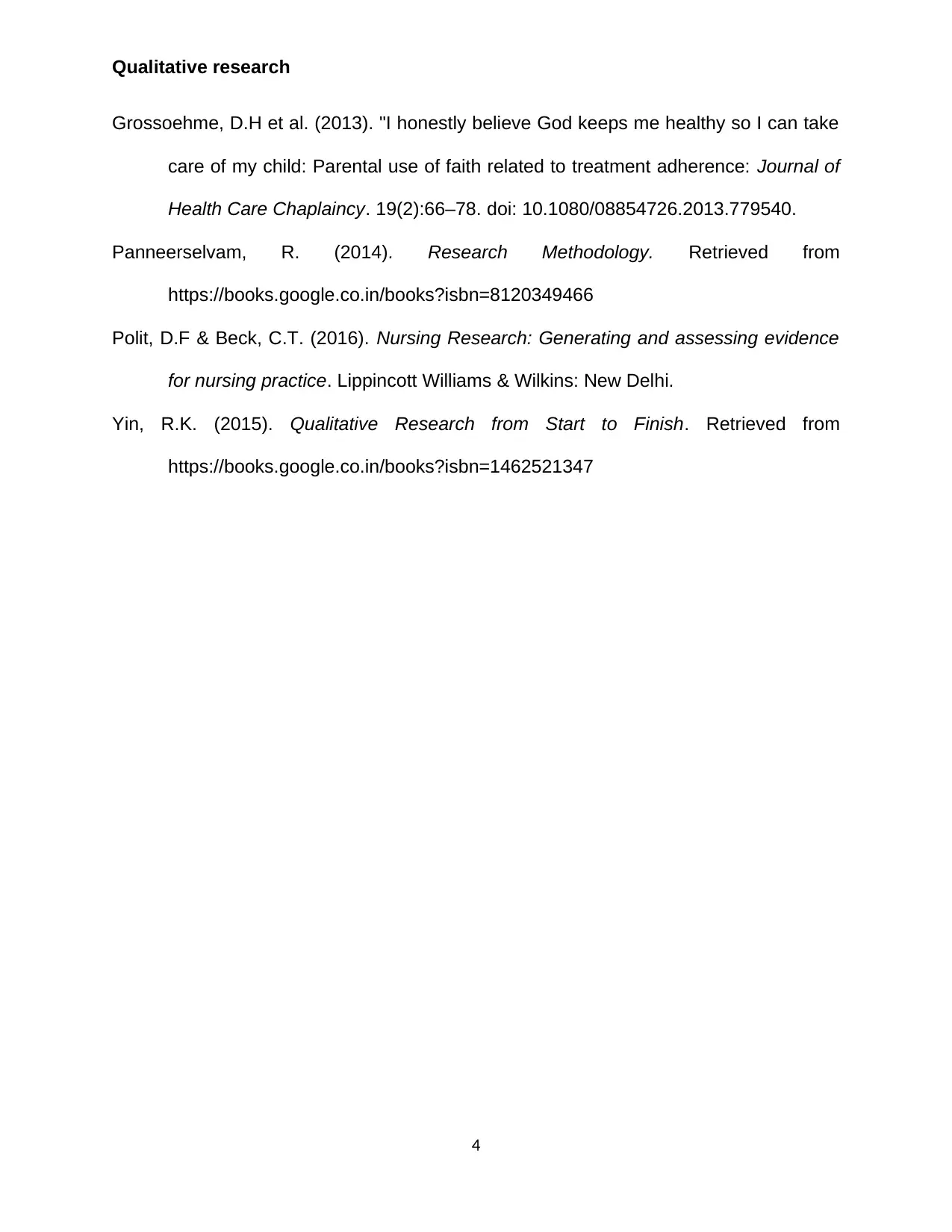Qualitative Research Report: Analysis of Diabetes Stigma Study
VerifiedAdded on 2020/02/24
|4
|974
|66
Report
AI Summary
This report analyzes a qualitative research study titled 'I am not a druggie (drug taker) but I am just having diabetes mellitus': a qualitative-research study on the stigma that is perceived by the individuals with diabetes mellitus (type- 1). Conducted in Australia in 2014, the study aimed to explore the perception and experience of stigma in individuals with type-1 diabetes (T1DM). The research employed a qualitative design, utilizing semi-structured interviews with 27 participants to explore their experiences across various domains, including healthcare, work, and social environments. Ethical clearance was obtained, and informed consent was secured from participants. The findings revealed that most T1DM patients experienced stigma related to their condition, often stemming from societal sources like media, family, and healthcare professionals. This stigma led to negative impacts on their social relationships, identity, and psychological health, influencing their willingness to disclose their condition. The study highlights the need for interventions to mitigate the negative effects of diabetes-related stigma.
1 out of 4







![[object Object]](/_next/static/media/star-bottom.7253800d.svg)